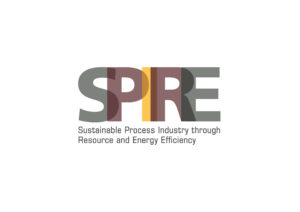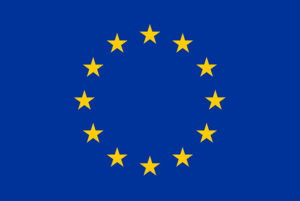General information
RETROFEED is an Innovation Action project funded by the European Union’s Horizon 2020 research and innovation programme under grant agreement N.869939 and evaluated as a SPIRE2030 initiative (Topic: CE-SPIRE-05-2019 – Adaptation to variable feedstock thorough retrofitting (IA 50%)).
- The project started on 1st November 2019 for an initial 42-month period. It was granted a 6-month extension and finished its activities in October 2023. The total cost for project implementation is € 15.454.951,88, of which € 9.912.915,33 are EU-funded.
The consortium consists of 4 RTD performers (Coordinator: CIRCE Foundation; AIMEN Technology Centre; Instytut Energetyki; Rina Consulting – Centro Sviluppo Materiali) that will focus on the characterisation and validation of the demo-sites and the development of the preliminary design of some solutions; 4 engineering and technology companies (Optit Srl; Odys Srl; Sistem Teknik Endüstriyel Fırınlar LTD; HTT ENGINEERING, Spol. S.r.o) in charge of the manufacturing and implementation of the RETROFEED solutions making use of the developments of the RTDs; 6 end-users (Torrecid SA; Secil-Companhia Geral de Cal e Cimento SA; Asas Aluminyum Sanayi Ve Ticaret AS; Ferriere Nord Spa; Fertiberia SA; Silcotub SA) that will act as data providers and support the development of the process by integrating the solutions developed in their facilities; and 4 horizontal partners (IVL Swedish Environmental Research Institute; Energy Efficiency in Industrial Processes ASBL; Geonardo Environmental Technologies Ltd; Rina Consulting Spa) working in the area of results validation, project business exploitations, dissemination and knowledge transfer.
- Dr Ana Isabel Gonzalez Espinosa (CIRCE – Project Coordinator) aigonzalez@fcirce.es
- Dr Diego Redondo Taberner (CIRCE – Project Manager) dredondo@fcirce.es
- Ms Marianna Santavenere (EEIP – Communication and Dissemination) marianna.santavenere@ee-ip.org
Intellectual and Industrial Property Rights for the inventions and their exploitation and dissemination is part of knowledge management; the IPR developed in the project for project execution is regulated in the Consortium Agreement. A policy of protecting IP will be adopted where applicable.
Objectives and innovation
- To increase the knowledge on REII processes by deploying advanced modelling techniques and implementing a new monitoring infrastructure in different steps of the production chain.
- To implement a circular economy approach leveraging on retrofitting for the introduction of by-products and waste streams as alternative feedstock.
- To adapt REII equipment for the provision and use of bio-based feedstock whether as fuel or raw material, thus replacing traditional feedstock for improving the processes environmental performance.
- To improve the control system of retrofitted processes in order to deal with a higher variability in feedstock while improving their overall technical, economic and environmental performance.
- To develop a Decision Support System for assessing the best retrofitting options and operation plan of the improved processes in order to achieve a high impact over the whole production chain.
- To ensure results replication and the exploitation of the retrofitting potential in REIIs through a retrofitting methodology, contributions to standardisation bodies and capacity building programs.
- Application of circular economic concepts to retrofitting activities
- Bio-based sources used as alternative material
- Steel industry residues and other similar residues for other industrial sectors as alternative feedstock
The European Green Deal covers all sectors of the economy, notably transport, energy, agriculture, buildings, and industries such as steel, cement, ICT, textiles and chemicals. The European Green deal aims at supporting industry to innovate and to become global leaders in the green economy. RETROFEED will support this goal by aiming at increasing resource efficiency by 22% and energy efficiency by 19%, with a consequent reduction GHG emissions 135 kton CO2.
Besides activities on retrofitting core equipment, the project will implement an advanced monitoring and control system, and provide support to the plant operators by means of a DSS – Decision Support System – covering the production chain.
Thanks to the application of the RETROFEED DSS tool, that will be able to provide different scenarios and assess them on the basis of a set of KPIs to support the optimal decision making in terms of resource, environmental and economic performance of the solutions, inefficiency and performance trends of the equipments, in order for them to be focused on alternative raw material and their potential effects on the whole process.
The first results will be seen as of the third year of the project (M24 onwards – November 2021).
The demonstrated approach will aim at achieving a reduction in costs of 9.3 M€. The roll-out plan will follow different stages and will consider the different technologies retrofitted. It will start by extending the implementation of the innovation in additional facilities of the industries involved, proceeding by providing the innovation as consultancy, engineering services and/or adding it to the portfolio of the companies involved.
Technical activities
In RETROFEED project biomass will be used as an alternative feedstock for energy production and raw material replacement. Thus, on one hand, fossil fuel consumption will decrease leading to the decarbonization of the industry and minimize greenhouse gas emissions. On the other hand, raw material external EU dependency will decline to guarantee the chain supply.
In RETROFEED project, the assessment indicates that biomass should come of an approximate radius of 100 km around the factories that are going to use it and from agricultural processes:
a) Agricultural biomass (annual crops, and orchards /permanent crops): such as straw and maize stalks and vineyard, fruit and olive tree pruning wood.
b) Forestry biomass: as pine eucalyptus tree.
c) Alternative biomass as residues from agro-industrial processes: such as almond shell, olive kernel, etc.
All these sources are considered sustainable sources.
Although each demo site has its own goals, all of them have common elements:1) Increase knowledge in REII processes by deploying advanced modelling techniques and implementing a new monitoring infrastructure in different steps of the production chains.
2) Adapt REII equipment for the provision and use of bio-based either as fuel or raw materials, thus replacing traditional feedstock for improving the processes of environmental performances.
3) Improve the control system of retrofitted processes to deal with higher variability in feedstock while improving their overall technical, economic and environmental performances.
4) Develop a Decision Support System for assessing the best retrofitting options and operation plan of the improved processes to achieve a high impact over the whole production chain.
Not necessarily. It can be considered that in case RETROFEED solutions prove to be implementable in an economically viable way, access to finance is not a bottleneck. However, any subsidies will accelerate and facilitate their implementation.

